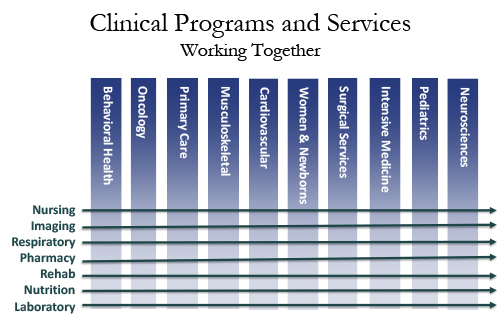Empowering staff yields high return on investment
Building healthy relationships between leaders and employees is vital to the success of any organization. It’s especially important in perioperative services because of the teamwork needed to provide safe patient care. OR leaders must invest in their employees by fostering trust, job embeddedness, and employee commitment, empowerment, and accountability. …
Role of smartphones in the OR
Editor's Note Like healthcare facilities across the country, those in Oregon are struggling with the growing problem of smartphones in the OR. This article and audio includes interviews OR personnel, residents, medical students, managers, administrators, and patient safety regulators on the issue of smartphones in the OR. The executive director…
Adaptive Design makes patient-centered care a part of every day
Providing ideal patient care is the fundamental purpose behind Adaptive Design, an innovative systems approach that engages frontline staff in problem solving and focuses on improving patient care as part of everyone’s daily work. “More access to better care at a continually lower cost is the promise of doing Adaptive…
Lean tools help staff weed out bioburden pests
At least half the battle in making and sustaining process improvements is getting the entire team on board with a new workflow. One key to getting buy-in from staff is to clarify why changes are needed and what the consequences may be if the new processes aren’t followed. In a…
Creating a powerful partnership between the OR and the SPD
Perhaps no other departments in a hospital work as closely together as the OR and the sterile processing department, yet friction isn’t uncommon as both areas strive to meet service demands. Although the relationship between the two is unlikely to ever be free of tension, leaders of both departments increasingly…
Are guidelines needed for cell phones in the OR?
Editor's Note There are no federal regulations or quality measures that address cell phone use in the OR, but some say the time for clear-cut guidelines has come. They cite errors and lax safety procedures that have resulted from physicians and nurses distracted by cell phone use. But others point…
The Impact of Operating Room Distractions on Stress, Workload, and Teamwork
Our Take Distractions in the OR are associated with higher mental workload and stress and poorer teamwork among OR personnel, a study finds. The most prevalent distractions were those from external staff, followed by case-irrelevant conversations. Case-irrelevant conversations initiated by surgeons were associated with lower teamwork in surgeons and anesthesiologists. Equipment-related…
Cost data comparisons help sway surgeons to standardize supplies

As payment models move from fee-for-service to value-based care, hospitals and healthcare systems are trying to reduce spending by 20% to 30% to maintain their budgets. Supply costs are usually the second largest expense after labor, and industry analysts predict they will take the top slot by 2020. In 2013,…
SCOREing patient safety with a proactive approach
Avoiding preventable harm in the OR is the goal of any surgical services department, and meeting that goal requires excellent communication and collaboration among staff members. At Cedars-Sinai Medical Center in Los Angeles, the Safe Care in the OR Everytime (SCORE) project has raised awareness about safety and engaged front-line…
Checklists help staff keep cool in the heat of an OR crisis
An emergency situation in the OR can rattle even the most experienced surgeons, anesthesiologists, and staff. To help reduce anxiety and prompt a more effective response to emergencies, clinicians increasingly are turning to cognitive aids. These cognitive aids, routinely used for years in aviation and other high-hazard industries, are an…

 Free Daily News
Free Daily News